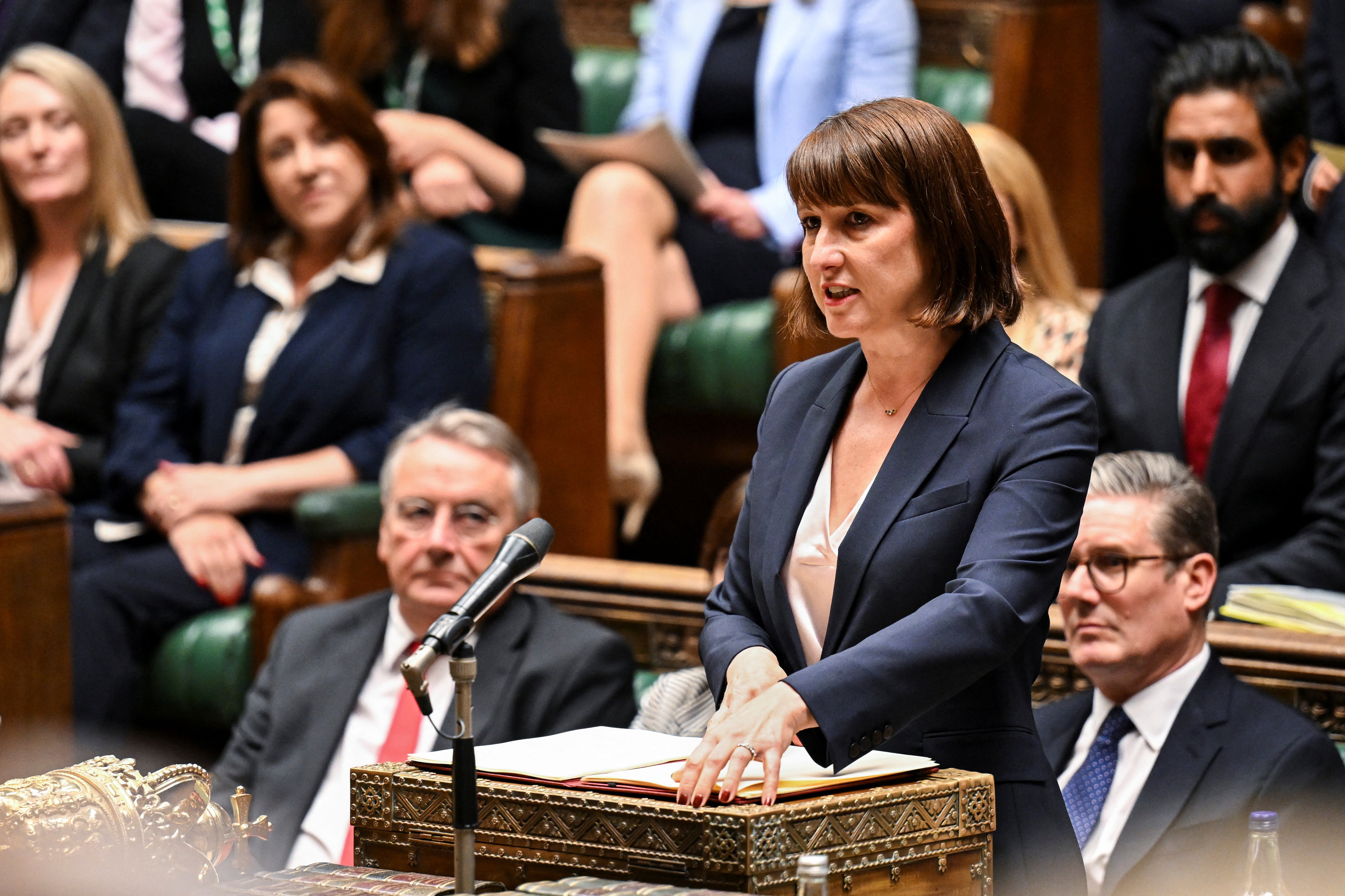What room to manoeuvre does Reeves have on tax?
The chancellor has signalled tax rises are coming, as Sean O’Grady looks at where the Treasury can start to fill in some of the £22bn black hole


Who to blame for the fiscal “black hole” and how big it “really” is are questions that have hogged the political debate in recent days. Traducing Jeremy Hunt’s integrity, by implication, has drawn a furious response from the former chancellor; his successor, Rachel Reeves, has been accused by Hunt of confecting the crisis to give in to the doctors’ pay demands, and to put up taxes, as she has planned all along.
In turn, Reeves accuses Hunt of lying. It’s probably worth mentioning that Reeves wouldn’t really have wanted to cut the pensioners’ winter fuel allowance, a deeply unpopular move with a key electoral demographic, just for lol, but in any event she’s now conceded that tax rises, ie over and above the specifics in the Labour manifesto, are coming: “I think that we will have to increase taxes in the Budget.” Given the overall tax “burden” on the economy is at a 70-year high, Reeves will have to look at her options...
How much does she need to raise?
It’s complicated, and we won’t know for sure until the Budget. Taking the £22bn “black hole” at face value, some of it comes from one-off unfunded spending, such as the Rwanda plan, but other elements, notably the bumper pay rise for doctors, are an annual, permanent feature of the public finances. In her spending audit, Reeves identified some £5.5bn of immediate “in-year” savings; more might be found, such as “efficiency savings”.
But that still leaves more than, say, £15bn to be found. And that, of course, doesn’t take into account other contingencies, such as paying compensation for the infected blood scandal, the collapse of Thames Water, the bankruptcies of universities and local authorities, and preparations for the next pandemic and European war. So, yes, who’d want to be chancellor of the Exchequer?
What won’t she do?
It would be simply too humiliating (war with Russia aside) to abandon the “triple lock” manifesto pledge – “we will not increase national insurance, the basic, higher, or additional rates of income tax, or VAT.” Labour has also ruled out raising corporation tax and reforming council tax. This pledge means that the freeze on income tax thresholds imposed by the Conservatives will continue for many years, adversely affecting millions of working people.
Will she tax the rich, then?
Broadly speaking, yes – but there’s always been some confusion about who they are. “Working people” was defined by Keir Starmer during the election campaign as: “People who earn their living, rely on our [public] services and don't really have the ability to write a cheque when they get into trouble.” Reeves, a trained economist, is maybe more aware that such people can also have financial assets other than their home, not least their pension pots, and recognises that they have savings they also rely on.
So will she tax savings?
In the sense of capital and the income from it, it does seem so. Labour has been extremely careful to say very little about capital gains tax (CGT) or taxes on interest and dividend income, and they seem obvious targets, given that all the really big revenue realisers, like income tax and VAT, have been fenced off. Many serious economists advocate bringing CGT into line with income tax rates.
However, it would only make sense in a world of inflation if the old system of indexation was reintroduced, and the threshold, which is now very low, raised towards the levels of income tax and national insurance. Additional taxes on company dividends and bank and building society interest could also be set with a fairly high threshold, so as not to penalise those working people who do indeed need to write a cheque (or sell an asset) to cover a domestic emergency.
What about the super-rich?
Labour is already committed to ending non-dom status, which will cover quite a few billionaires; we may expect more action on evasion, complex offshore trusts, dodgy evasion schemes and the like. Proceeds, though, will be uncertain, because the super-rich can simply skip jurisdictions.
Is my pension safe?
Not necessarily. One of the very few remaining middle-class tax perks is higher rate tax relief on pension contributions, and for those with even modest pension pots the option to take some out as a tax-free lump sum. (Final salary or defined benefit pension schemes would have parallel new tax charges.) Much the same goes for the UK’s relatively generous inheritance tax regime and the tax-free ISA schemes. Reeves might well be tempted/forced to take a nibble out of each, possibly balanced with a more generous offer to basic rate taxpayers.
What’s wrong with taxing wealth?
People don’t like it and it damages enterprise and thus economic growth. More immediately, it would disincentivise savings and reduce investment, thereby harming Labour’s primary economic mission – boosting economic growth. Reducing private pension incomes would also increase the burdens on the state pension and the welfare state. “Pension nationalism” is becoming attractive though, so Reeves could simultaneously introduce tax breaks and other encouragement for investment in British companies, as she is proposing to do with pension funds.
How about taxing sin?
With the exception of vapes, we’re probably reaching the practical and political limits of ramping up duties on tobacco, booze and fuel.
What about the voters?
The pledge to avoid hiking taxes on “working people” means that only the more prosperous will be directly hit. On the other hand, it does dent Labour’s aspiration to be the party of aspiration. For Reeves, it all depends on whether the tax hikes help to improve public services and raise living standards.






Join our commenting forum
Join thought-provoking conversations, follow other Independent readers and see their replies
Comments